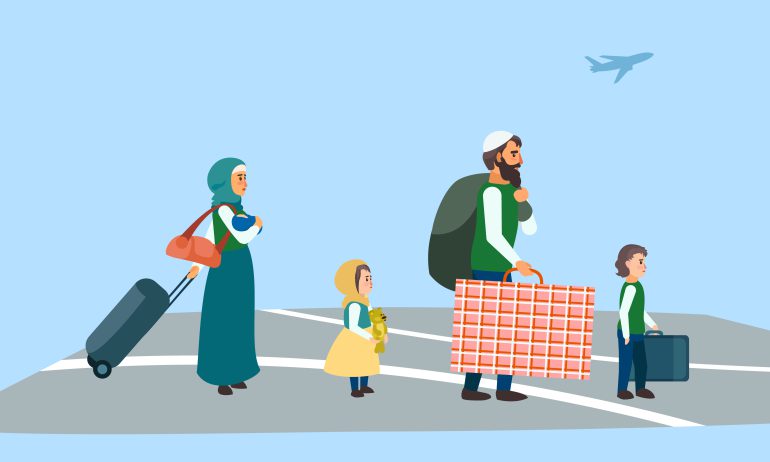The Refugee Distribution Bill continues to cause difficulties in Dutch politics after the Chamber of Representatives voted on 12 September to block any new votes on the law before the next cabinet is formed after the general election on 22 November. The Chamber decided on a series of bills deemed too controversial for the current demissionary cabinet to consider.
The bill, which was the primary factor in bringing an end to Rutte’s fourth cabinet and his time as Prime Minister, after the coalition lost a major vote on the issue in Parliament, offers a series of measures to enact the fair settlement of refugees across Dutch municipalities. The law was first announced in 2022 and was seen as a measure to offer some relief to ease the burden of the refugee crisis that is gripping the Netherlands and Europe as a whole. According to research by polling company I&O, Dutch voters think asylum is the biggest issue facing the country (alongside the nitrogen dispute) heading into the election.
Under the proposed bill, municipalities across the Netherlands will be required to accept a certain number of refugees per year and will receive government funding of €2,500 for each individual. Municipalities will be expected to enter into this agreement willingly, but should they refuse, the bill will allow the national government to unilaterally enforce it. The municipalities are thus expected to offer what is termed shelter spaces. Currently, no municipality is required by national law to provide any spaces, although some offer them voluntarily. The calls for a new law intensified after it was revealed that there were many municipalities that did not offer any shelter spaces. This led to the shocking situation at the national reception centre for refugees in Ter Apel, a small town with a population of just 8,000 in Groningen province. Hundreds of asylum seekers were forced to sleep outside in the summer, since the centre was overflowing and no space could be found elsewhere.
More equal distribution is ‘necessary to achieve structural solutions in asylum reception,’ according to a spokesperson for the Central Agency for the Reception of Asylum Seekers (COA). Director Milo Schoenmaker says that without the law the ‘country will remain stuck in the same situation we are in now. We will continue to need emergency shelter for a long time, which is much more expensive than regular shelter.’ In 2022, the Netherlands received 47,000 refugee applications; 85% of processed cases were granted asylum according to government statistics. The majority of people receiving settled status come from Syria, Afghanistan and Turkey. However, refugees often have to wait many years before hearing a decision, meaning that temporary housing is necessary for many people.
There are continued criticisms that the law is too complex and will be unenforceable. The Socialist Party MP Jasper van Dijk was strident in his response to the proposals: ‘The law is currently shoddy and contains all kinds of perverse incentives.’ He adds that the law needed to be amended ‘in such a way that wealthy municipalities also take their responsibility.’
The new law is proposed in the context of a wider move by the European Union to standardise refugee dispersal across member states. The new migration deal, agreed by member states in June although has yet to be ratified, will impose new border restrictions on frontline states, while also attempting to bring an equilibrium to asylum numbers. Member states will essentially be given a choice between accepting a specific number of refugees per year or paying €20,000 for each person they do not accept. The exact numbers have yet to be decided and the bill will go through the European Parliament later in the year.
As in most upcoming elections in major European countries such as France, the UK, Italy or Germany, in the Netherlands too asylum and immigration policy more broadly will be a major talking point in the upcoming vote. The issue has the potential to swing the election in various ways.
Written by James Turrell
